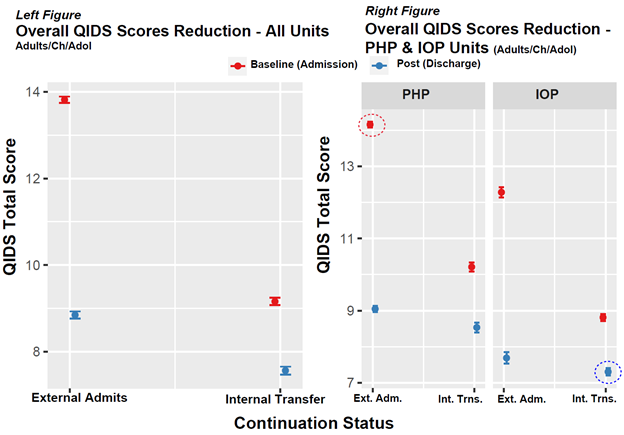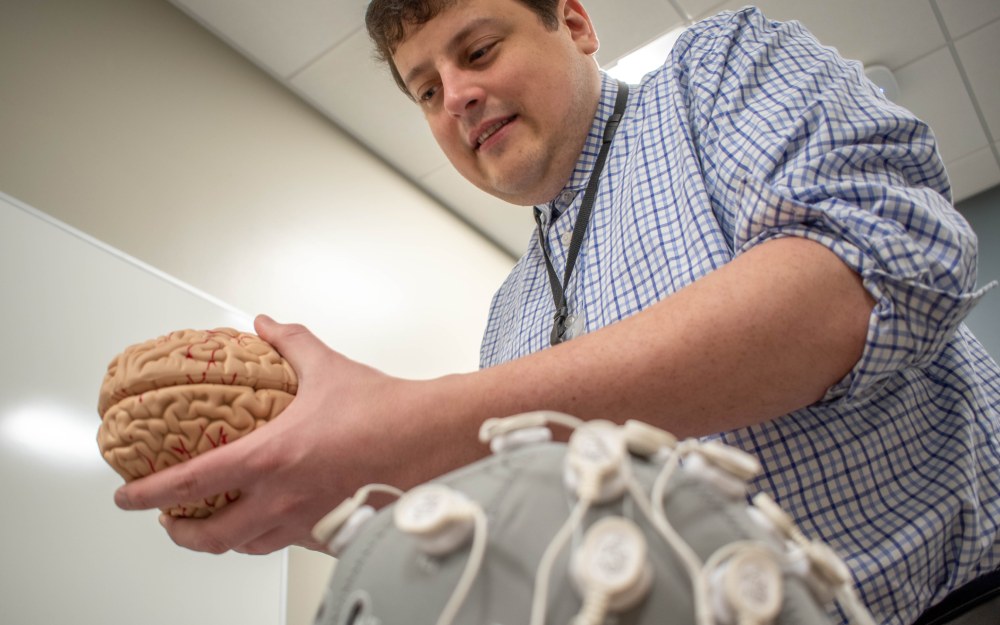
New statistical analysis demonstrates effectiveness of clinical pathway
04/20/22 05:25:pmThe Data Analytics team recently conducted an in-depth analysis looking at outcomes for the effectiveness of the clinical pathway.
“When averaged across all age groups and all services, patients who follow the clinical pathway have significantly less severe symptoms at discharge relative to those who admitted to Rogers and only completed one level of care,” says Sala Lotfi, PhD, a data scientist. “This underscores the importance of continuing to encourage patients to adhere to the recommended treatment dose and continuing treatment at lower levels of care.”
The team analyzed the clinical improvement made by more than 70,500 Rogers patients’ data in all levels of care since 2012. They reviewed results of the Quick Inventory of Depression Symptomology (QIDS) at admission and discharge for more than 52,000 patients who admitted directly to any one level of care at Rogers and completed only that program.
They then compared the clinical improvement with more than 18,000 patients who completed more than one level of care. Those who followed the clinical pathway and completed at least two levels of care showed significantly greater improvement in QIDS scores with fewer symptoms upon discharge. This held true whether patients went from inpatient to residential care, or residential to partial hospitalization (PHP), or from PHP to intensive outpatient (IOP).

Results from the analysis also demonstrate to insurance providers the importance of completing the entire clinical pathway, which means more patients may have the opportunity to receive treatment across all levels of care.
As a leader in measurement-based mental healthcare, Rogers’ large database of patient outcomes over many years and our ability to do this type of system-wide analysis is something that sets us apart and benefits not only our patients but the entire behavioral health field, according to Jessica Cook, director, Data Analytics.





